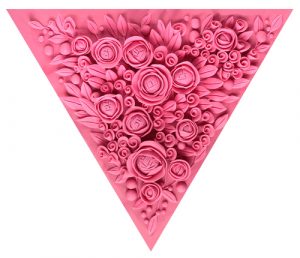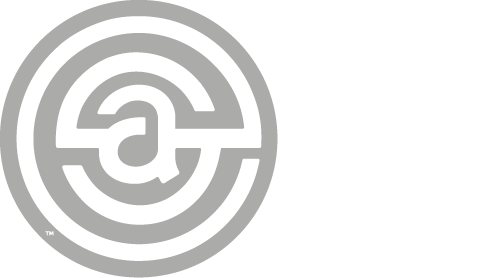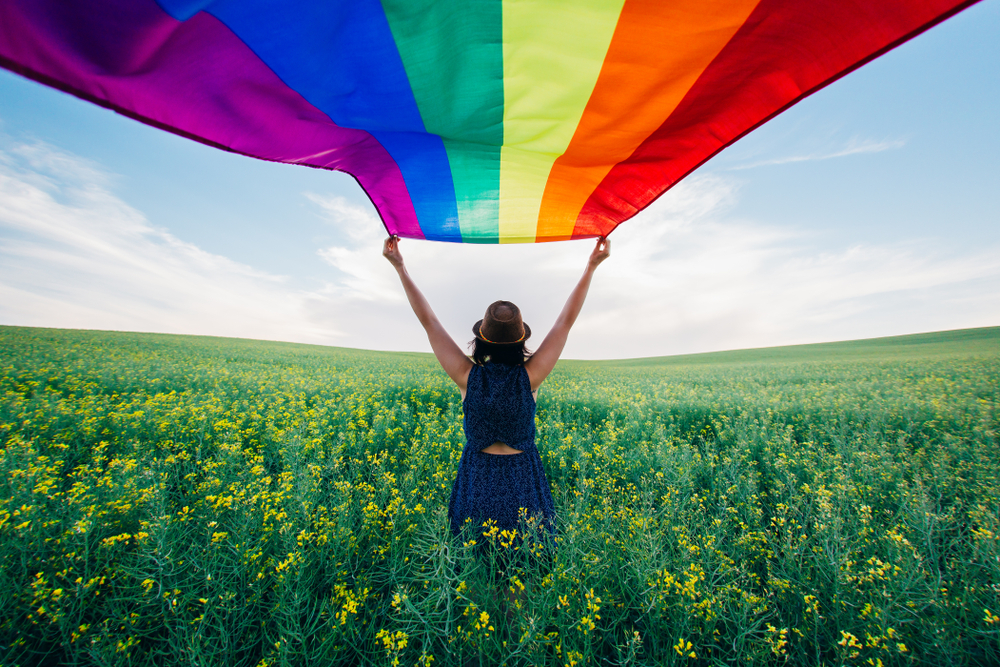LGBTQ+ Diversity and Inclusion at Elohi and in the World
In honor of Pride Month, here are a few thoughts about LGBTQ+ pride in the corporate world from Elohi Strategic Advisors CEO, Dimitra Rizzi.
Whether we point to the Stonewall Riots in 1969, or to President Clinton’s officially making it “Pride Month” in 2000, LGBTQ+ Pride Month gives us a chance to look at our relationship with diversity and inclusion in two ways. First, we’ve still got a long way to go. But second, we’ve come a long way, baby. For me, June is a time to acknowledge that there is still a lot of inequity, there are still a lot of challenges; but there is also so much to celebrate and call out — the progress we’ve made so far, and the positive steps we’ve taken.
American DEIB — A Long Way to Go
As a culture, America has a long way to go in diversity and inclusion. In my experience, we have much farther to go than a lot of other countries do. Being gay is just a bigger deal here than in other places. The new laws and legislation in Texas and in Florida that take away basic rights just baffle me. That we even have to talk about it, that it’s not just an everyday thing we don’t even have to think about, makes me shake my head. We’re supposed to be the melting pot, and yet we focus sometimes on the differences between us, rather than the things we have in common.
American DEIB — Come a Long Way, Baby
On the other hand, there’s so much to celebrate in how far we’ve come on LGBTQ+ inclusion. I think about the pink triangle, and that there are kids now, especially, who don’t even know where that symbol came from, don’t even know how it got reclaimed. The Nazis used it as a marker for gay men in concentration camps, and even after the end of the war, many of those gay men were put in prison by the Allies. Being gay was illegal, no matter who was in charge. We’ve come so far that we’ve turned that pink symbol into something that people wear or show without even thinking about its origins. People had to wear it, to show that they were going to be killed for it; and now it’s a bumper sticker that’s just one more thing about who you are.
Business and Industry — A Long Way to Go
In the business world, there’s still a lot of DEIB work to be done. Of the Fortune 500 companies, there are only four with openly gay CEOS – Apple (Tim Cook), Dow Chemical (Jim Fitterling), Macy’s (Jeffrey Gennette) and Land O’Lakes (Beth Ford). And of those companies, out of the five thousand or so board seats, there are only 25 board seats that are occupied by openly LGBTQ+ people. That’s like .2% of the places available, and LGBTQ+ people make up about 9-10% of the population. So that’s not right. There’s more room for improvement at the top levels of corporate leadership. There are still some companies that just talk the talk, and some that don’t even bother to do that.
Business and Industry — Come a Long Way, Baby
At the same time, though, again, companies make strides toward equity and inclusion every day, too. Beth Ford, for instance, at Land O’Lakes, not only serves as CEO, but as the head of her company’s diversity and inclusion board. She’s in there making sure that the culture flows from the top, down into the rest of the company. That’s what some companies have done – not only diversity in leadership, but in making sure all kinds of people want to work for them, at all levels. The Human Rights Campaign has a Corporate Equality Index that lists the companies with the best records on inclusion, and on helping people feel like they belong. Some companies have scored 100% on that scale for twenty years straight – Nike, Xerox, American Airlines. This year, fifteen of the twenty top Fortune 500 companies earned 100% for their scores. Companies see that building the right culture helps them recruit and retain the best people, have more engagement from employees, and ultimately make more money. Some companies aren’t just talking the talk, but walk the walk, too.

ESA Sets an Example of Welcoming and Belonging — For Everyone
For us, at Elohi, diversity and inclusion across everything we do began with the very fabric of who we are. Our founder, Stephanie, is so clearly inclusive. We have a lesbian CEO. We aren’t necessarily out there shouting, “Woo! Pride Month!” because for us, it’s just who we are.
There are four pillars for the Corporate Equality Index from Human Rights Campaign, and even though we aren’t a Fortune 500 company, Elohi blows through all the requirements.
- Nondiscriminatory Policies. Our employee handbook lays out our policies in more detail, but it comes down to this. When we’re interviewing potential clients and introduce ourselves, we say that Stephanie and her husband live in this city, and that my wife and I live in this other city. The clients we end up choosing tend not to blink or flinch or look away when we say that – their body language doesn’t change or give away how they feel. We just don’t work with companies that aren’t inclusive. We decline.
- Equitable Benefits for Workers and Families. We put our money where our mouth is on this, too. We pay for insurance for everyone, no exclusions. Health care for all workers and families, fully inclusive.
- Supporting an Inclusive Culture. Again, our employee handbook says a lot more than this, but it comes down to our two rules: no drama; and no gossiping. Gossip makes someone feel left out, excluded. It almost always becomes personal. We’ve put our money where our mouth is on this, too, and fired people for gossiping. You can make the t-shirt and wave the flag all you want, but if you aren’t willing to fire someone who undermines their coworkers or the corporate culture, then you’re not really supporting that inclusivity. People come to us and say, “I’m so glad to come to work and get to be my whole, authentic self!” That’s what we’re working toward, and what we want to preserve and protect in our company culture.
- Corporate Social Responsibility. Some companies that have been in business for a hundred years might need to change their policies, to play catch-up. Elohi started out with a founder who doesn’t see or care about the differences that don’t matter. Stephanie started out with an attitude of hiring the very best people, who can do the very best jobs, regardless of whether those people fit any kind of image or stereotypes. That’s what we continue to do – hire people who can get shit done, because that’s what matters.
For me, personally, Pride matters for celebrating the parts of our American culture that have come a long way, and about celebrating the companies and businesses that have stepped out in front and led the way in making sure that everyone has opportunities. We can focus on the negatives or on the positives. I want to encourage more companies and businesses, big and small, to do the right things, to live our values.
For younger people and those who need a reminder to feel pride about who they are or about themselves, I hope Pride Month opens up a space for them to let go of shame and fear. For me, at this point in my life, I’d rather celebrate Elohi and they way we set an example than focus on myself. We should feel pride – a second-generation woman-owned company with 50+ employees, an executive team that’s three-fifths female, a founder with Cherokee heritage, and a lesbian CEO. We should share that pride about Elohi and about other companies that push equality and equity forward, because that’s where the future is.


Recent Comments